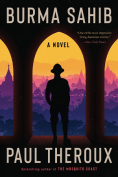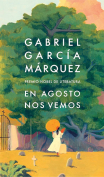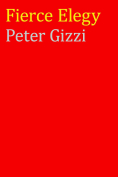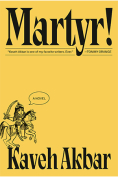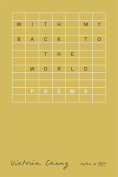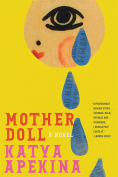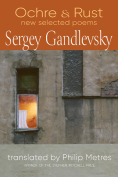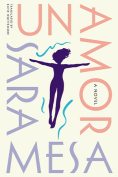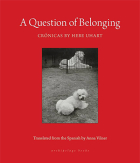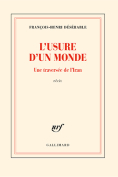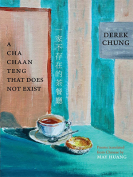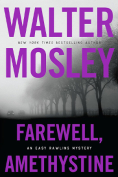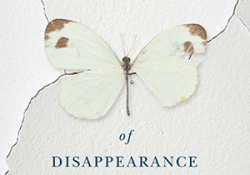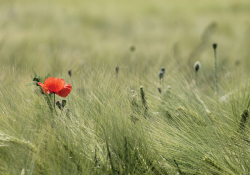[. . .]: Poems by Fady Joudah
![The cover to [...] by Fady Joudah](https://worldliteraturetoday.org/sites/worldliteraturetoday.org/files/Joudah.jpg) Minneapolis, Minnesota. Milkweed. 2024. 100 pages.
Minneapolis, Minnesota. Milkweed. 2024. 100 pages.
Poetry is so often an art of reflection, but in certain times a poet is called in the moment to respond to the atrocities of the world with immediacy. What’s rare is that a publisher heeds that call and is able to bring that work to the world in short order. Such is the context for Fady Joudah’s latest collection, [. . .], a consequential and searing look at the present reality of the Palestinian people and the unmitigated horrors they are facing at the hands of the Israeli state. Few are more prepared than Joudah to take on this topic as a Palestinian poet who has written extensively about the history and reality of his people, a preeminent translator of Palestinian poetry (most notably that of the great national poet Mahmoud Darwish), and as an individual who is grieving great personal loss of family and loved ones since October 2023. As such, Joudah’s entire life as person and as writer has been orientated toward this reality.
The book begins conceptually and in earnest in 1948 but on the pages here covers the span of October 2023 to the time of its publication. It is, as the title suggests, a timeline that can only be marked by ellipses. . . . He begins the book with these lines:
I am unfinished business.
The business that did not finish me
or my parents
won’t leave my children
in peace.
And it is this notion of “unfinished business,” of the present insistence of completing the dreadful process of colonization and genocide, the continuum of these actions, that sits at the core of this book and follows the reader at every turn. He ends the opening poem by stating:
I write for the future
because my present is demolished.
I fly to the future
to retrieve my demolished present
as a legible past. To see
what isn’t hard to see
in a world that doesn’t.
These lines articulate the oscillating and often surreal reality of a future and a past that seem both tethered and unmoored from one another as cycles of violence against Palestinian people continue in perpetual repetition. For Joudah, the narrator of these poems (though the “I” decidedly serves both the personal and collective), the self exists in a state of suspended animation, reminding the reader that this is part of a perennial condition, that this is not only the happenings of now but a multilayered recurrence that has intergenerational impact as Palestinian people continue to struggle with a removal from their homeland marked by consistent bombardment, murder, displacement, relocation, and rebuilding, only to be destabilized again and again.
This reminder of recurrence is an essential conceit of the book, not only in the way the poems begin to articulate the lasting effects of the processes of empire and settler colonialism but in consistently pointing the reader to the antecedent realities of this current moment. While many will read Joudah’s text as an indictment of this moment, it is equally important to understand it as an articulation of a continuum of violence that long predates this moment. In this vein, there is a stirring wind that hovers over these poems, reminding us of an unendingness, a lack of completion, an inability to clearly see the horizon ahead, which leaves the reader, also suspended, waiting simultaneously for the news we know is coming and the material realities of that news to change. The voice that drives these poems is acutely aware of both the complicity and consequences of empire and its citizenship and of the detachment many have from the powers that control it all. As Joudah writes:
How will I go on living
with orchestras that conduct my
thirst?
And it is this thirst, this idea of losing control over one’s own direction in life, one’s desires, one’s bodily autonomy and ability to envision a future, that haunts each page of this text. Throughout the collection, Joudah grapples with the experiential and the relational, the layers of which exist well beyond the realm of language, which is perhaps one of the most compelling drivers of this book.
But I’m closer to you
than you are to yourself,
and this, my enemy friend,
is the definition of distance.
While we are faced with poems that will resonate with our deepest sense of humanity and morality, poems for children dead that will haunt us and cause us to question the order and priorities of the world we embody, there is in these poems a necessary and often beautiful weight that emphasizes human interaction both with one another and with the larger world: the relationship between a hive of bees and a beekeeper, a man on the street who hands the speaker a rose in exchange for nothing, the human touch of lovers, of family, the working of a garden, an insistence that despite the tremendous weight of the moment, survival has been and continues to be a defining force in the lives that populate Joudah’s world and that, like his people before him, he proclaims: “I will survive. There is no better song.”
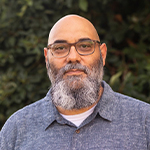 Matthew Shenoda is the author of several books, including Tahrir Suite, winner of the 2015 Arab American Book Award. He is currently professor and chair of the Department of Literary Arts at Brown University.
Matthew Shenoda is the author of several books, including Tahrir Suite, winner of the 2015 Arab American Book Award. He is currently professor and chair of the Department of Literary Arts at Brown University.

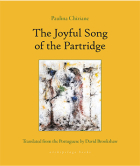
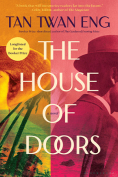
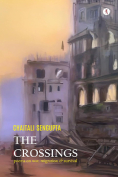
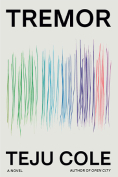
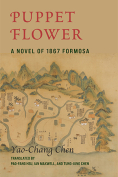
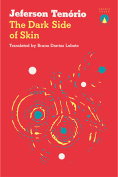
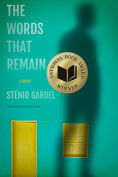

![The cover to [...] by Fady Joudah](/sites/worldliteraturetoday.org/files/styles/backissue_small/public/Joudah.jpg?itok=HZO1_68A)

